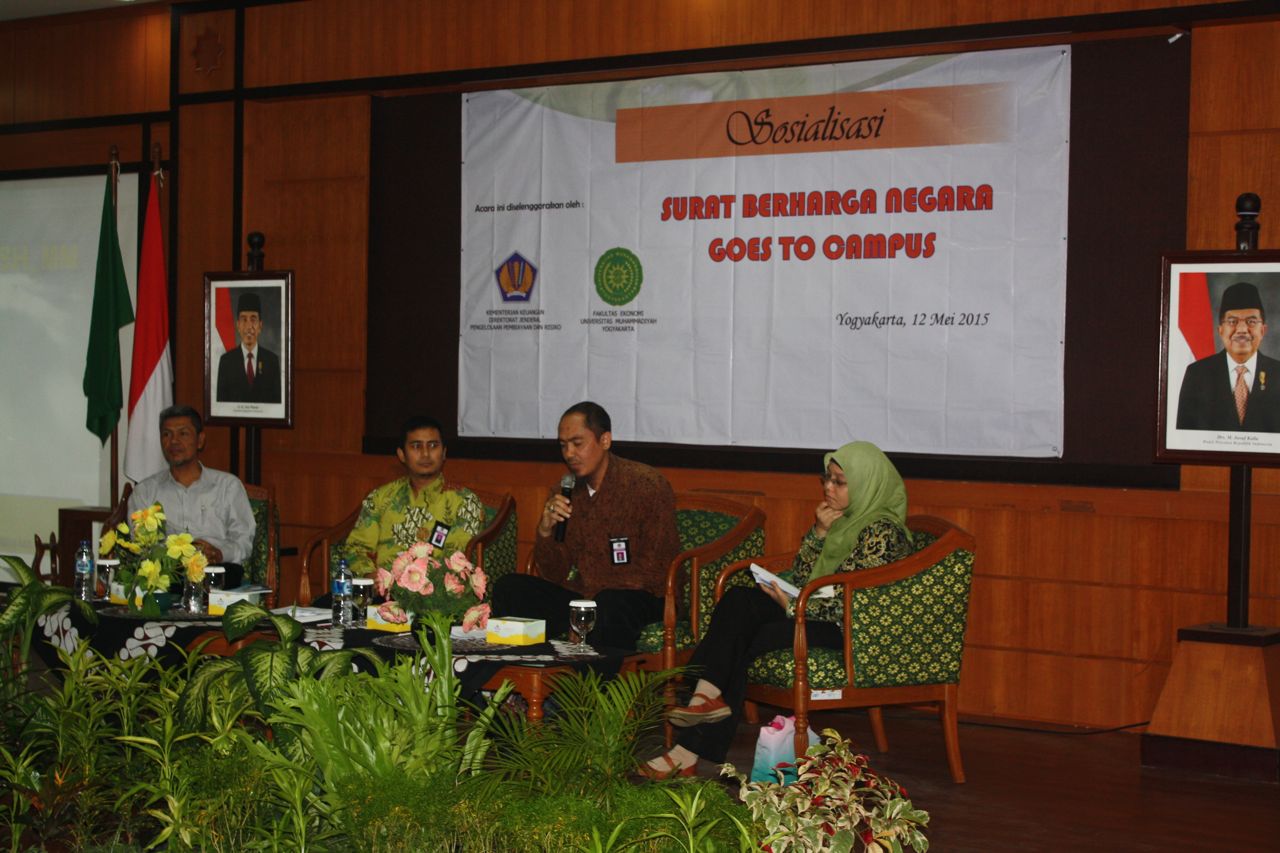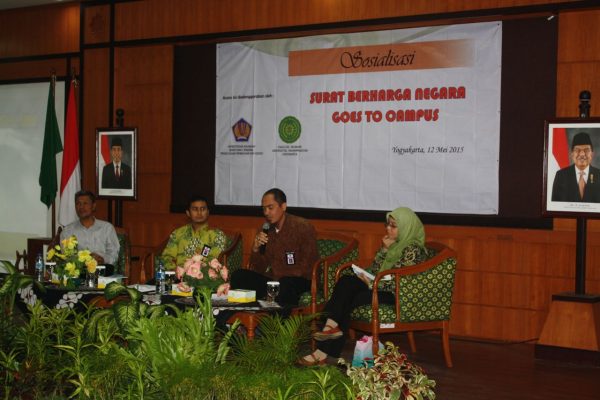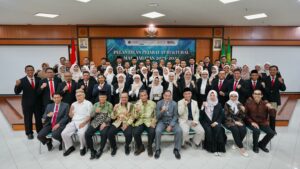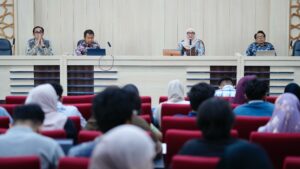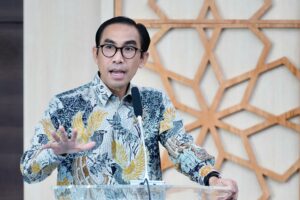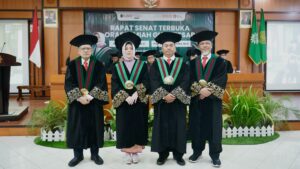Public understanding of state debt management is still low. Public also has not comprehended yet government performance in coping with State Debt Management and Treasury Notes (SBN). Ministry of Finance of the Republic of Indonesia entails to socialize and share the SBN with academicians and public.
Based on the background, Ministry of Finance of the Republic of Indonesia represented by Directorate General of Budget Finance and Risk Management cooperated with Faculty of Economics of Universitas Muhammadiyah Yogyakarta (UMY). They organized a talkshow and socialized Treasure Notes and Debt Management on Tuesday (12/5) in Building of AR Fachruddin B, Floor 5. The theme of the talkshow was ‘Treasury Notes (SBN) Goes to Campus’.
Dwi Irianti Hadiningdyah, S.H., M.A., Head of Sub-directorate of State Sharia Security Market Development delivered a remark. She stated that most people have not understood the performance of government in Debt Management and Treasury Notes (SBN), particularly State Sharia Securities (SBSN) as an instrument of finance and investment having a strategic role on national development. According to Dwi, university environment, as students and lecturers, is a group of people who is critical of various governmental policies. Thus, the socialization event could accommodate students’ and lecturers’ opinion. It also could open potential SBN investors for students and lecturers in the future. “UMY is a higher education that has developed rapidly and concerned with finance market development in Indonesia, particularly Islamic finance development. It is the reason why we conduct this socialization in this university,” she uttered.
Dwi inserted that the main aims of the talkshow and socialization were sharing the information of SBN with academicians and providing a forum for academician to express their thoughts toward management policy of treasury notes since many people have not acknowledged SBN. “This socialization has various purposes, and we encourage finance market development in Indonesia, particularly sharia development through spreading the information among academicians,” he added.
Attaining the economic development targeted by government, Indonesia attempted to discoasar modalver fund resources for nation development, and one of the ways was through being in debt. Dr. Imamudin Yuliadi, S.E., M.Si., Head of Economic Department of UMY and Head of Islamic Economic Expert Association Commissariat (IAEI), was also one of the workshop speakers. He conveyed that rupiah weakening affected on elevating nation debt. “If the debt was managed well, it would assist economic development. I guarantee that there is no country in this world that does not have any dept to develop the country,” he elucidated.
On the other hand, Imamudin continued, Islamic finance was the expectation of Indonesia. Various Islamic finance institutes in Indonesia as Islamic capital market, Islamic banking, Islamic pawnshop, Islamic insurance, and Islamic business were supposed to help Indonesia finance. “Islamic finance could assist Indonesian economic development, yet it is sad that public is lack of knowledge of Islamic finance,” he inserted.
Furthermore, Dian Handayani, S.E., Ak., MBA, Division Head of Public Services and Investor Relation of Directorate of Islamic Financing, asserted that State Sharia Securities (SBSN) or ‘sukuk’ was treasury notes published based on Islamic principles. It was the evidence of SBSN Assets in rupiah or foreign exchange. Law No.19/2008 on State Sharia Securities provided bases of publication of SBSN as authority of government to publish SBSN and the use of state properties as well as financing object as underlying asset. The underlying asset is an asset becoming object or the transaction basis of sukuk publication.
In addition, sukuk is derived from Arabic meaning document or certificate. The term of sukuk was plural from of ‘sakk’.
